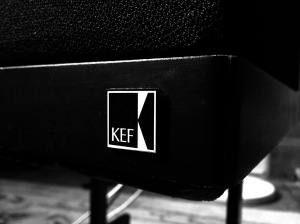Suppose we created a black box into which we could put any form of audio processing and amplification, and fed its output into an array of loudspeakers. Audiophiles could register their preferences for the sound and, based on these preferences, the contents of the box would be modified. The idea would be that, eventually, we would home in on the most desirable audio reproduction system possible because it would be based purely on blind listening tests. As we know, blind listening tests are the gold standard when determining audio quality.
What would this give us?
I suggest that what we would get would be a box that transformed all music fed into it into Dave Brubeck’s Take Five.
It would take an awfully long time. Starting from random contents in the black box, the output would initially be white noise, or silence, perhaps. Listener feedback would be ‘statistically insignificant’. At some point, however, the random noise might begin to resemble a snatch of jazz rhythm which most middle-aged male listeners would latch onto, giving positive feedback. The highest common factor of audiophile listening is, obviously, Dave Brubeck’s Take Five, so from the initial ‘seed’, this piece would eventually crystallise out of the randomness.
[see the comments for a detailed explanation of what this means!]

It’s not April 1st (Fool’s Day) yet 🙂 I’m sure this is meant in good humo[u]r. It is similar to the old (and “trivially true”) story about monkeys randomly tapping on typewriters. If you had enough of them, and enough time, they would theoretically type out everything that has ever been written, or would be written. The time is of course zillions or just call it infinite. Your black box would, of course require the feedback loop of audiophile voting.
But many of us agree that “Take Five” is a great song 🙂
LikeLike
It was really just a thought experiment, calling the bluff of the idea of listening tests being in any way scientific, or even useful.
I was thinking about the way certain manufacturers, audio blogs and forums hand over responsibility for validating design questions to, what I think are mythical, blind listening tests. I thought that if listening tests are so effective, then by using them we should be able to come up with the ultimate audio system. However, listening tests can only arbitrate between choices that have already been designed by someone. The lure of the blind listening test is that it can bypass pure measurement and design dogma and can supposedly validate scientifically the ‘unmeasurable’ properties of vinyl and valve distortion, for example. But if so, why stop there? The blind listening test combined with a genetic algorithm approach might allow us to go further and home in on a hitherto undreamed-of audio reproduction system.
But the more you think about it, the more ridiculous it becomes. What is the listeners’ job? To compare the output against a recording? If so, how do they listen to the recording in the first place? An existing system, presumably. If so, aren’t they just going to reproduce an imitation of that existing system? Or maybe the listeners’ job is to use their experience and judgement to establish the best ‘enhancement’ of the recording to better resemble their own memory of what live music sounds like. If the voice is too quiet (in the listeners’ judgement) the system could end up being trained to selectively boost the vocals. Is the listeners’ job to compare the output against ‘live’ music – maybe we have a jazz band playing continually and the listeners can hop between the live venue and the room with the speakers in it to compare the sound. But how does the live sound get into their system in the first place? What if the live band has a singer but there is no mic provided for the singer? The only way we can create the ‘live’ sound is for our system to synthesise the singer’s voice – which it could indeed do given infinite listeners and infinite time (monkeys in a cage, as you mention). In these scenarios, what would the system do with an as-yet-unheard song? What would it do with an as-yet-unheard act? It could obviously never work.
The way I see it, an audio system either reproduces faithfully the wiggly line that is the recording, or it artificially synthesises extra stuff. This may ‘enhance’ a particular recording in some, or even all, listeners’ opinion, but it must also be detrimental to other recordings that didn’t need the ‘extra stuff’ in the first place. Clearly (to me, anyway), the only sensible system is the one that adds nothing and takes nothing away, and whether a system is doing this or not can be established with design and measurement. Bringing listeners into the design equation can only cause confusion.
LikeLike
I’m not sure about “Take Five” – more likely the first track off “Kind Of Blue”, “So What” ;-). At least, that’s what my local hifi dealer would probably claim, he’s apparently functionally deaf to the entire album after hearing it 50,000 times.
LikeLiked by 1 person